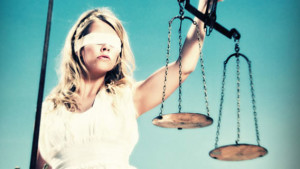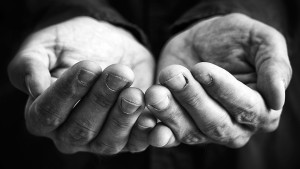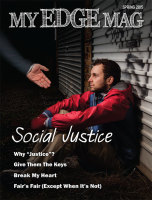A group of university honours students and I recently spent a pleasant 75 minutes discussing the writings of Martin Luther King, Jr, and Malcolm X. At one point I asked them whether they as a group of mostly white American students had ever considered the real-life implications of the much-quoted line from King’s “I Have a Dream Speech” in which he dreams of a world in which his “four little children will one day ... not be judged by the colour of their skin, but by the content of their character.”
“Has it ever occurred to you,” I asked the class, “that for most of us here it’s much, much better that we be judged by the colour of our skin?” Predictably, most of them had not thought about this—and in truth, few of us do. We like to think of this line as one that applies equally to all of us, that a world in which colour-blindness is the norm would be a world in which we’re all better off. But here’s the truth: I cannot speak for all white people, only for myself, but I’m relatively certain that I get a far better shake in life by virtue of my colour than I would if my character were the determining factor.
I’m really not that great a person. But in spite of my not-greatness, I am continually reminded of my relative social capital any time I travel. My appearance and my United States passport pretty much guarantee that I can move unobstructed throughout the world. There are no walls designed to keep me out, no special detention centres for people like me. I have come to expect this preferential treatment and to find it almost unremarkable when my black travelling companion is pulled over for repeated searches and rounds of questioning at security checkpoints.
“What would Jesus do?” we are encouraged to ask ourselves as we determine how to prioritise our activities. It seems that all too often we conclude that Jesus would happily accept his status as an esteemed male Jewish rabbi and take it from there.
Jesus’ justice-centred life
If, as disciples, we are expected to follow Jesus’ example, we can hardly avoid a commitment to creating communities in which all human beings receive all the things that the privileged have come to expect as their due: employment, health care, nutritious food, clean water, safety, education, respect, dignity. But, too often, it seems Christians have been silent on many of these issues.
It’s not that we don’t talk about justice and about the tendency of Jesus to take care of the poor. In fact, the term “social justice” has been used in Protestant circles for at least a hundred years to encapsulate the rather obvious concept that “Christians should not merely give to the poor, but also work to correct unjust conditions that keep people poor.”1 But over that same period of time, many Christians seem to have become increasingly more notable for keeping inequality alive, and even, in some cases, making it worse.
Perhaps we are largely confused about what “justice” really is. For many people, “justice” means getting what one deserves—and while as individuals we tend to believe that we personally deserve good schools for our children, streets free of violence, preventative health care, organic fruits and vegetables, opportunities to use our talents while also making an adequate living to support our families through our obvious merit as people, we are not always certain that others deserve the same.
But “social justice,” rightly conceived, has nothing to do with what each person might deserve with regard to his or her merits, and much more to do with a wider philosophical question: What does a person deserve? If we determine that a person deserves clean water, for instance, then we would have to conclude that all people should have access to this benefit and we would be duty-bound to work for a world in which this is in fact the case.
This seems to be the way Jesus approached justice. There is no evidence that He spent any time at all determining whether the people He healed were particularly deserving of healing. And, of course, He consistently sided with the poor, the oppressed and the outcast in every situation in which siding was necessary: the woman caught in adultery, the little children, the tax collector. The only people who received chastising from Jesus were the wealthy and the pompous—those who were so self-satisfied that they could not even see their own spiritual poverty.
If we are to learn anything from the example of Jesus, it is that striving for social justice in this world—right now—is the primary thing we are called to do. That thing we call “the Golden Rule” as quoted by Jesus: “So whatever you wish that others would do to you, do also to them, for this is the Law and the Prophets” (Matthew 7:12, ESV). Note that Jesus does not say who these “others” are. It doesn’t matter. They are anyone. And anything that I or you or anyone else thinks we have a right to expect from life is equally due to everyone else around us.
Choosing to change today
It’s easy to get into the habit of expecting that inequality is here to stay, and even accepting it as a consequence of a sinful world. Jesus’ statement—“The poor you will always have with you” (Matthew 26:11)—is often used as a reason not to give change to homeless people, or to expend too much time and energy on efforts or programs designed to eliminate poverty.
But it appears that here Jesus wasn’t creating an excuse for inaction—He was merely pointing out that His time on earth was limited and that His disciples would have plenty of time after He was gone to continue with their ministrations to the poor. As much as anything else, Jesus’ mission was about “transforming the life on earth into the harmony of heaven.” He goes on to note that Jesus was concerned with creating a society “resting on love, service and equality,” rather than one based around “coercion, exploitation and inequality.”2
So what do we do with this knowledge? It’s nothing new to Christians. We know what Jesus stood for—but at the same time we find it easy to forget His words. He said, “If you would be perfect, go, sell what you possess and give to the poor” (Matthew 19:21). He said, “I was hungry and you gave me food, I was thirsty and you gave me drink, I was a stranger and you welcomed me” (Matthew 25:46).
Martin Luther King, Jr, once wrote, “I cannot sit idly by in Atlanta and not be concerned about what happens in Birmingham. Injustice anywhere is a threat to justice everywhere.” And neither can we as Christians sit idly by and allow an unjust world to become more unjust still. We have a model in our teacher and our God—Jesus—and His example is clear enough. We have the ability to bring good news to the poor, and that good news is not merely that heaven awaits in the life after death, but that an army of people who care and who love unconditionally is willing and able to offer assistance and to march alongside those who need support.
—This article is adapted from a chapter of Do Justice: Our Call to Faithful Living, edited by Nathan Brown and Joanna Darby, available from your local Adventist Book Centre.
1. Laurie Goodstein, “Outraged by Glenn Beck’s Salvo, Christians Fire Back,” New York Times, March 11, 2010.
2. Walter Rauschenbusch, Christianity and the Social Crisis, MacMillan & Co, 1907.
Becky De Oliveira is a writer, speaker, editor, and graphic designer, currently living in Colorado.






